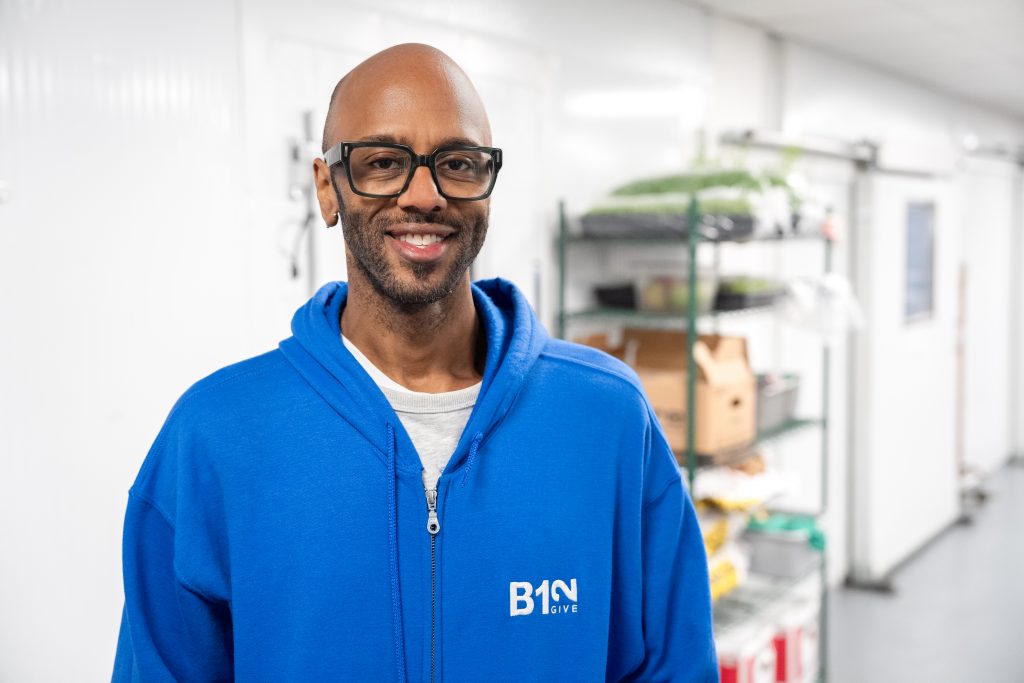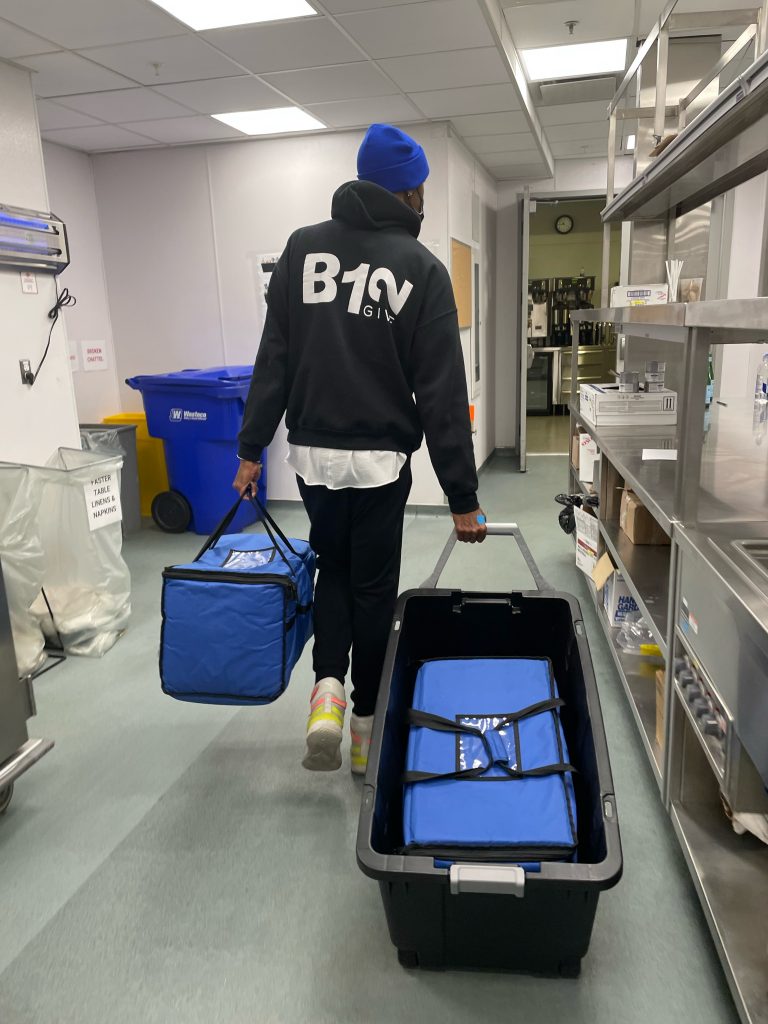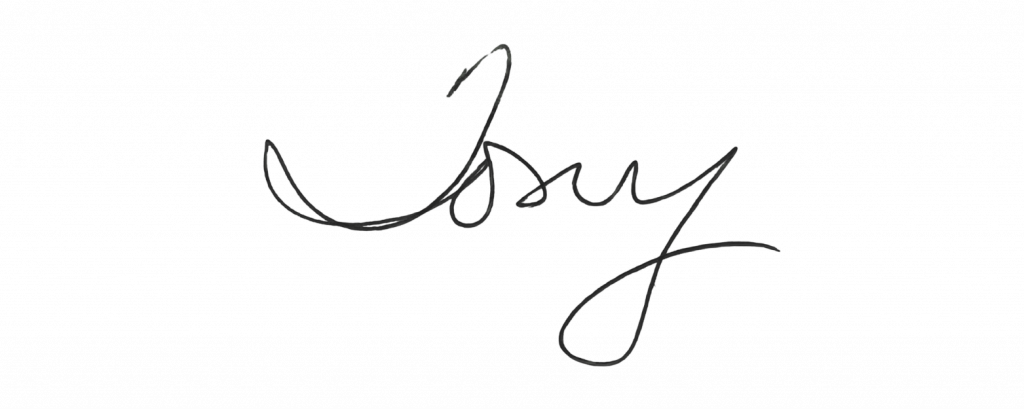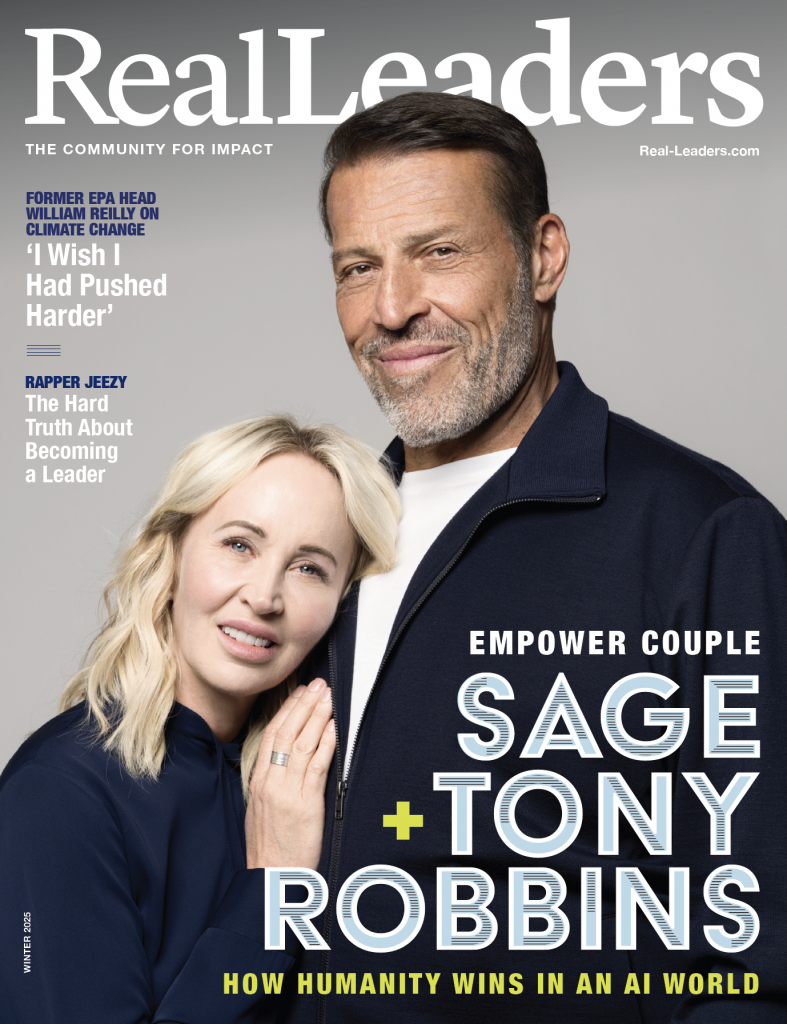
I never thought I’d become food insecure at 44 years old. For 23 years I built a career I was proud of: 16 years in finance managing $4.5-billion commercial portfolios, fundraising $250,000 for a nonprofit organization in four years, and on the flipside, I spent weekends for 20 years in event production. From the outside it looked like success; on the inside I was restless. I wanted to go out on my own and build something with my own two hands.
After more than two decades of working for others, I took the leap — but it didn’t work! The business failed, and everything I thought I’d built crumbled. Suddenly I wasn’t a “professional” anymore, I was just a man staring at a $278 bank balance. Thankfully I had no debt, but also no job, no income, no safety net, and most importantly, no food.
There’s a kind of shame that comes with that realization. I’d spent my career projecting competence, expertise, and control; yet here I was, skipping meals, counting pennies, and pretending I was fine. The truth was I was hungry, and I was terrified.
Failure strips you bare. It humbles you in ways that no motivational speech or leadership book can capture. I had to face the facts that I wasn’t invincible and nothing in life was guaranteed. But here’s what failure also did: It forced me to pay attention.

When you’re hungry, you start seeing food everywhere, and you also start noticing how much edible food is wasted — perfectly good meals tossed in the garbage while people suffering like me quietly go hungry. That disconnect lit a fire in me, and I realized my lowest moment might just be the seed of something bigger.
I didn’t want anyone else to feel the same quiet desperation I’d felt, so while working in catering and watching all of this surplus food being tossed away, I started asking: What if there was a way I could take surplus food and redirect it to people who actually need it? That’s where the idea for my startup B12Give came from — out of failure, hunger, and humiliation.
It wasn’t glamorous at all; it was scrappy, messy, and uncertain, but this time the work felt different. I wasn’t just chasing success; I was building something that mattered. Looking back now I can say that losing everything was the best thing that ever happened to me.
Would I wish it on anyone else? Absolutely not. It was brutal, but it forced me to stop coasting. It pushed me to confront what I really wanted my life’s work to stand for, and it gave me the courage to do it.
To anyone else who faced the same setbacks, understand that failure isn’t the end of your story, it’s the raw material you build the next chapter with. Don’t bury it, don’t spin it, don’t PR-polish it, just own it because somewhere in that wreckage might be the thing that changes everything.
I had $278 and no food in my fridge. Today I lead a company tackling food insecurity and food waste simultaneously. That journey didn’t start with a vision deck or a business plan; it started with me being hungry, wondering how the hell I was going to feed myself.








